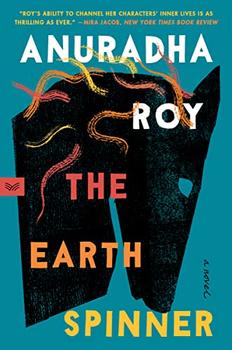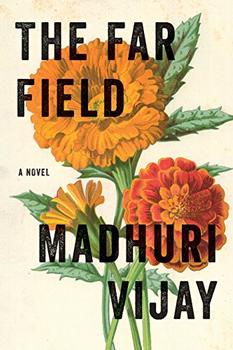Summary | Excerpt | Reviews | Beyond the book | Read-Alikes | Genres & Themes | Author Bio

A Novel
by Anuradha RoyAnuradha Roy's The Earthspinner packs a lot between a few reams. Neither too tautly written that the language grates nor indulging in effervescent prose, the novel offers a soulful dip into a linkage of stories and a mode of reflection, leaving you with poignant ideas and themes to mull over. For instance, what lies at the intersection between love and art? What sort of lovers do artists make? How does one handle grief, especially when it comes laden with loneliness? Where do loss and longing find release?
Set in a town in the Deccan region in southern India, the novel is about Elango, a Hindu potter who falls in love with Zohra, a Muslim. There is also Sara, the young girl he teaches, who has a tangential presence in his life as a protégé but for whom Elango's impact is much larger. One day, he dreams about a flaming horse walking along the bed of the ocean. Convinced that the creation of this horse in terracotta is inexplicably but irrevocably linked to his longing for a life with Zohra, he sets about making the masterpiece. It is "the first thing he had ever made that served no utilitarian purpose, whose single reason for existence so far had been his need to give shape to a creature he had seen in a dream."
In a sociopolitical climate where mobs could arise to kill people of a different religion over a cricket match, and set in an era – the 1970s – when the wounds of the Partition were more freshly oozing, Elango's desire for Zohra could potentially be fatal. But the artist in him interprets his dream of the horse as a sign that through his work he could perhaps, cosmically, metaphysically, somehow make these cultural rules not apply to his own life.
Elango belongs to the potter caste, a lower caste traditionally relegated to making pots for a living (see Beyond the Book). While his father sought social elevation through the means of education, Elango has chosen pottery for himself, something his ancestors were forced to take up. For Elango, making pots feels "as if he were pouring himself onto the wheel and turning into any shape he willed."
The Earthspinner begins with Sara's journal entries describing her experiences as a foreign student in England and the loneliness she feels there, compounded by her grief over losing her father. As Sara looks back on her childhood, Elango takes center stage and becomes the main protagonist. What one could call the climax of the novel comes a little over the halfway mark, and the perspective then shifts back to Sara.
Sara is both the teller of the story as well as a character within its weave. But it's the context in which she's narrating that provides poignancy. Her grief allows her to deal with the trauma of witnessing a tragedy involving her teacher — a mentor figure with whom she may have been slightly infatuated.
In places the novel comes across as too contrived — certain things fall into place a little too easily. The pace, too, sags around the middle. All the same, it works as a gentle read, not dousing you in heavy ideas or complicated storylines. Besides, it's an astonishing feat to fit into such a tight narrative themes as wide-ranging as love, loss, identity, diasporic longing, grief and art, while also exploring all kinds of relationships: parent-child, mentor-protégé and even human-pet. As a matter of fact, one of the central relationships in the book is the one between Elango and Chinna, a pup he adopts.
The Earthspinner is an Indian novel rooted in the country's ethos and history, but one that reaches out to tap into ideas that are universal.
![]() This review was originally published in The BookBrowse Review in September 2022, and has been updated for the
August 2023 edition.
Click here to go to this issue.
This review was originally published in The BookBrowse Review in September 2022, and has been updated for the
August 2023 edition.
Click here to go to this issue.

If you liked The Earthspinner, try these:

The Djinn Waits a Hundred Years
by Shubnum Khan
Published 2025
"A dark and heady dream of a book" (Alix E. Harrow) about a ruined mansion by the sea, the djinn that haunts it, and a curious girl who unearths the tragedy that happened there a hundred years previous

by Madhuri Vijay
Published 2019
Gorgeously tactile and sweeping in historical and socio-political scope, Pushcart Prize-winner Madhuri Vijay's The Far Field follows a complicated flaneuse across the Indian subcontinent as she reckons with her past, her desires, and the tumultuous present.
Great political questions stir the deepest nature of one-half the nation, but they pass far above and over the ...
Click Here to find out who said this, as well as discovering other famous literary quotes!
Your guide toexceptional books
BookBrowse seeks out and recommends the best in contemporary fiction and nonfiction—books that not only engage and entertain but also deepen our understanding of ourselves and the world around us.